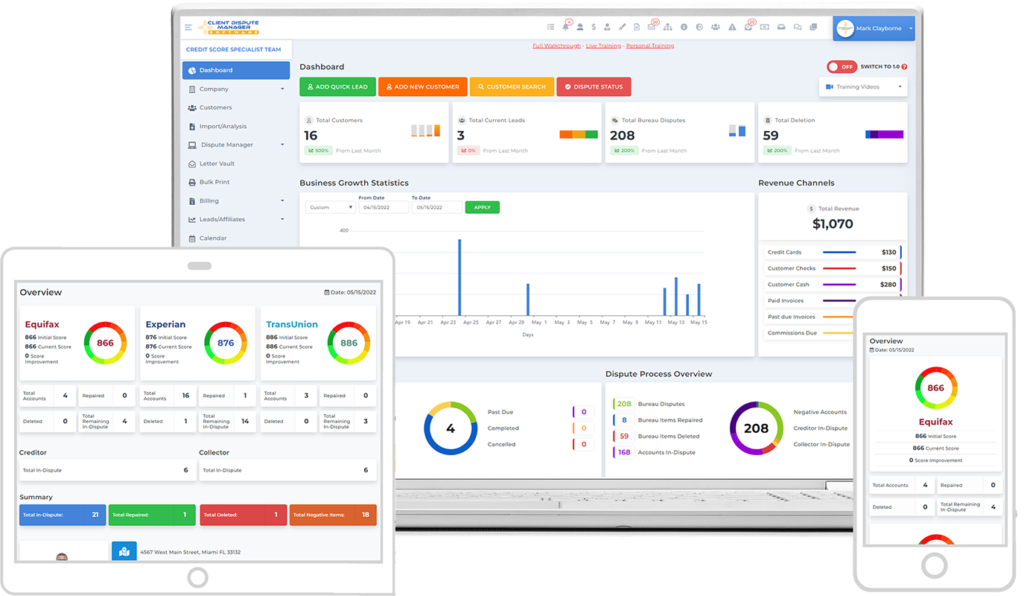Navigating the financial landscape in a new country can be daunting, especially when it comes to building and maintaining good credit. For immigrants, understanding and repairing credit is crucial to achieving financial stability and unlocking opportunities in their new home. This comprehensive guide delves into the nuances of credit repair for immigrants, offering tailored advice and strategies to build a solid financial foundation.
Introduction to Credit Repair for Immigrants
Credit repair for immigrants is a crucial process that involves improving or correcting inaccuracies in one’s credit history to achieve a healthier financial standing in a new country. Immigrants often face unique challenges when navigating the credit system, as they may start with no credit history or encounter difficulties transferring their credit history from their home country.
This process begins with understanding how the credit system works in the new country, including the factors that influence credit scores, such as payment history, debt levels, and the length of credit history. Effective credit repair strategies may include disputing errors on credit reports, managing debts wisely, and gradually building a positive credit history through responsible financial behaviors.
By taking proactive steps towards credit repair, immigrants can enhance their chances of securing loans, obtaining favorable interest rates, and achieving financial stability in their new environment.
Understanding Credit in a New Country
Credit systems can vary significantly from country to country, making it a challenge for immigrants to adapt to the financial norms of their new home. In many countries, credit scores play a pivotal role in determining an individual’s eligibility for loans, mortgages, and even rental agreements. For immigrants, grasping the basics of the credit system is the first step toward financial integration and independence.
The Importance of Good Credit for Immigrants
Good credit is not just a number; it’s a passport to financial opportunities. It affects one’s ability to secure housing, purchase a vehicle, or start a business. For immigrants, establishing good credit is essential for building a new life, providing access to necessary financial products and services, and achieving long-term financial goals.
Building a Credit History in a New Country

Building a credit history in a new country is a foundational step for immigrants seeking financial stability and access to various financial services. This process often requires starting from scratch, as credit histories rarely transfer across borders. Key strategies for establishing a positive credit history include opening a local bank account, obtaining secured credit cards or small loans with manageable repayment terms, and consistently making timely payments.
Additionally, becoming an authorized user on a trusted person’s credit account can also contribute positively. It’s essential to engage with financial institutions that report to the major credit bureaus in the new country, as this ensures that every financial move contributes to building a robust credit profile.
By understanding and navigating the specific credit landscape of their new home, immigrants can lay the groundwork for future financial endeavors such as buying a home or starting a business, ultimately facilitating a smoother integration into their new community.
Starting From Scratch: First Steps
For many immigrants, the journey begins with no credit history. Establishing a credit history from scratch involves understanding the credit system’s basics and taking proactive steps to build credit responsibly.
Securing Your First Credit Card
One of the most effective ways to start building credit is by securing a credit card. For immigrants without a credit history, options include applying for credit cards specifically designed for newcomers or opting for retail or department store cards, which often have more lenient approval criteria.
Utilizing Secured Credit Cards
Secured credit cards are a valuable tool for immigrants looking to build credit. These cards require a deposit that serves as collateral, reducing the risk for issuers and making them more accessible for individuals without a credit history.
Understanding the Credit Score System

Understanding the credit score system is essential for financial well-being, as it affects loan eligibility, interest rates, and more. This score reflects creditworthiness based on factors like payment history, debt levels, and credit history length. Scores range from 300 to 850, with higher scores indicating better credit. To maintain or improve a credit score, it’s crucial to pay bills on time, manage debt wisely, and limit new credit applications. Being informed about credit scores helps individuals make better financial decisions.
How Credit Scores Are Calculated
Credit scores are determined based on factors such as payment history, credit utilization, length of credit history, types of credit in use, and recent credit inquiries. Understanding these factors can help immigrants take informed steps to improve their credit scores.
Factors Affecting Credit Scores
Several factors can affect an immigrant’s credit score, including late payments, high credit card balances, and applying for too many credit accounts in a short period. Being aware of these factors is crucial for effective credit management.
Common Credit Issues Faced by Immigrants
Immigrants often face credit challenges due to a lack of local credit history, making it hard to access financial products and secure favorable terms. Key issues include difficulty obtaining credit cards, loans, or mortgages without an established credit score or social security number. Additionally, misunderstandings about credit score importance, calculation, and the process to build credit, coupled with potential language barriers and unfamiliarity with local financial laws, further complicate their ability to navigate the credit system effectively.
Identifying and Understanding Common Issues
Immigrants may face unique credit challenges, such as a lack of credit history, difficulty accessing credit, and potential misunderstandings due to language barriers or unfamiliarity with the credit system.
Addressing Identity Theft and Fraud
Identity theft and fraud can be significant hurdles for immigrants, potentially damaging their credit scores and financial reputation. Taking steps to protect personal information and promptly addressing any instances of fraud are critical.
Strategies for Credit Improvement

Improving your credit involves timely bill payments, reducing debt, and keeping credit card balances low. Check and dispute any credit report errors, diversify your credit types, and avoid excessive new credit applications to minimize hard inquiries. Maintain old accounts to lengthen your credit history. These steps can gradually boost your credit score, leading to better loan terms and lower interest rates.
Best Practices for Credit Management
Effective credit management involves timely payments, keeping balances low, and only applying for new credit when necessary. These practices help improve credit scores and maintain financial health.
Disputing Errors on Credit Reports
Errors on credit reports can negatively affect credit scores. Immigrants should regularly review their credit reports for inaccuracies and dispute any errors found, ensuring their credit history is accurately represented.
Establishing a Strong Credit History
Building a strong credit history takes time and consistency. Using credit responsibly, maintaining a mix of credit types, and demonstrating reliability as a borrower can all contribute to a strong credit profile.
Tools and Resources for Credit Monitoring
Credit monitoring can be efficiently managed through various tools and resources designed to help individuals keep track of their credit scores and reports. Many credit bureaus and financial institutions offer free credit monitoring services that alert users to changes in their credit report, potentially flagging fraudulent activity or errors quickly.
Personal finance apps and websites provide real-time insights into credit scores, along with tips for improvement and the ability to simulate how future financial decisions might impact one’s credit score.
How to Regularly Check Your Credit Report
Regularly checking credit reports is crucial for identifying errors, tracking progress, and understanding credit status. Immigrants can access their credit reports for free from major credit bureaus annually, allowing them to stay informed and proactive about their credit health.
Client Dispute Manager Software: Streamlining Credit Repair for Immigrants

In the journey towards financial stability, immigrants often face the daunting task of navigating through complex credit repair processes. Given the challenges associated with building a credit history in a new country, leveraging technology can significantly ease this journey. Client Dispute Manager Software emerges as a crucial tool in this context, offering a streamlined, efficient approach to managing credit disputes and improving credit scores.
Enhancing Efficiency in Credit Repair
Client Dispute Manager Software is designed to simplify the credit repair process. This technology automates the task of identifying errors in credit reports, drafting dispute letters, and tracking the progress of disputes. For immigrants who are already dealing with the complexities of adjusting to a new financial system, this software can reduce the burden of manual credit repair tasks, making the process more manageable and less time-consuming.
Features and Benefits of Client Dispute Manager Software
Automated Dispute Letters: The software generates dispute letters based on the errors identified in credit reports, saving users the hassle of drafting letters from scratch.
Progress Tracking: Users can easily monitor the status of their disputes and see real-time updates on their credit repair journey.
Educational Resources: Many Client Dispute Manager platforms offer educational resources to help immigrants understand their credit rights and how to navigate the credit system effectively.
Customization: The software allows for customization to address the unique challenges and disputes specific to an immigrant’s credit report, offering a tailored approach to credit repair.
Integration into the Credit Repair Strategy
Incorporating Client Dispute Manager Software into an immigrant’s credit repair strategy can significantly enhance their ability to improve their credit score efficiently. By automating and simplifying the dispute process, immigrants can focus more on other important aspects of their financial journey, such as building a strong credit history and managing credit responsibly.
Coupled with the strategies and advice outlined throughout this article, this technology can play a pivotal role in achieving financial stability and unlocking opportunities in a new country.
Conclusion
Credit repair for immigrants involves understanding the credit system, taking proactive steps to build and maintain good credit, and utilizing available resources and protections. By following the strategies outlined in this guide, immigrants can navigate the complexities of the credit system, address common issues, and lay the groundwork for financial success in their new country. Building and repairing credit is a journey, but with the right approach, it’s one that can lead to financial stability and opportunity.

